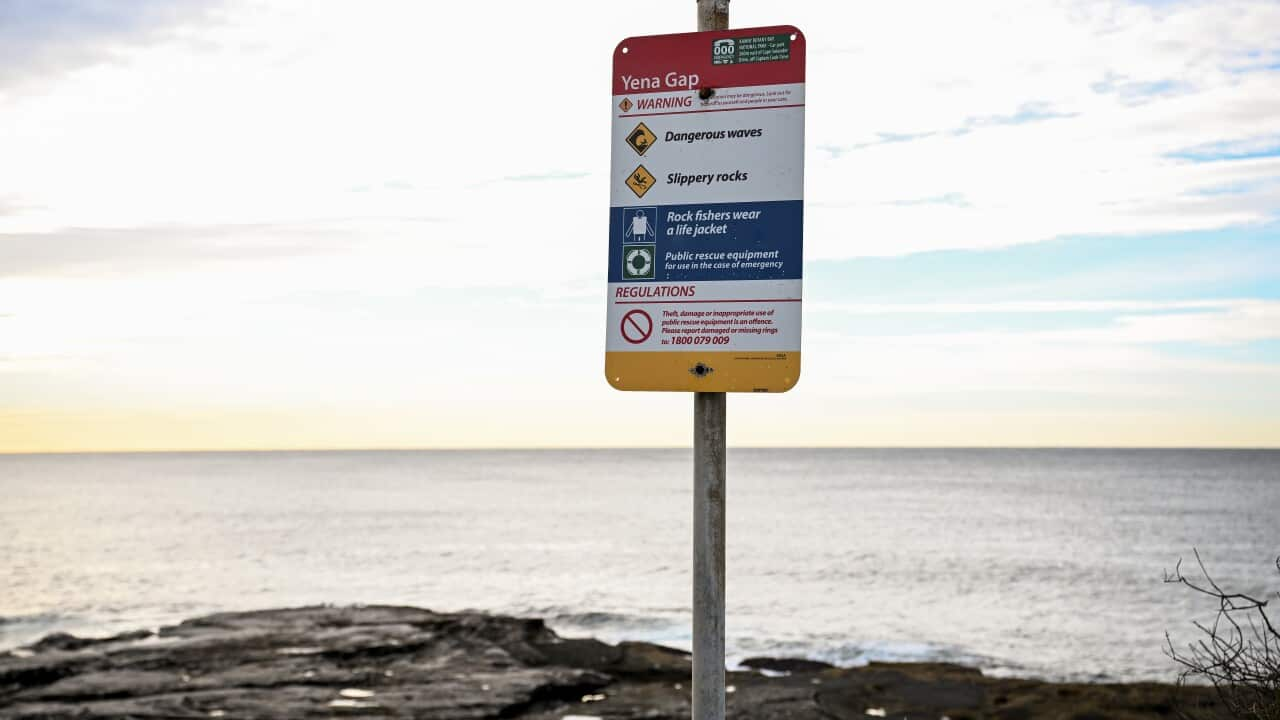More education about the dangers of Australia’s coastline will be targeted at multicultural communities after two women died when they were swept out to sea.
The women, aged 38 and 39, were picnicking in Sydney’s south before a freak wave swept the pair off a popular rock face on the King’s Birthday public holiday.
A third woman also swept from the rock shelf is recovering in hospital.
Emergency services were called to Yena Rd at Kurnell about 4.30 pm on Monday after being told the women had been swept into the ocean.
Head of the NSW Police Marine Area Command, Superintendent Joe McNulty, said the group of three women and two men had been picnicking in the national park on Botany Bay.
“At that time, it was a very light tide,” he said on Tuesday.
“The people were walking very close to the water’s edge and with a low tide the rock platforms are very exposed, very slippery, full of seaweed.”
Three of the women were knocked into the water by a large, freak wave, McNulty said.
“They’re enjoying a walk on the rock platform and probably didn’t take into account the low tide and extremely slippery rock platform,” he said.
The conditions would give a large wave a “significant extra amount of force” to knock anyone on the platform from their feet and drag them into the water, McNulty added.
One woman was plucked from the water by two group members, while a passerby also helped in the rescue effort.
Police in a helicopter spotted the women in the water and rescue crews pulled the duo unconscious from the waves.
A rescue boat carrying the women was driven at high speed back to Kurnell, but officers were unable to revive the pair.
Rough sea conditions and the heavy winter clothing worn by the women made the rescue operation more difficult, McNulty said.
It was the second drowning incident at Kurnell in less than a fortnight.
Two Nepalese fishermen were swept off rocks on Cape Solander Drive on 28 May in an area declared a high-risk rock-fishing location where anglers must wear life jackets.
McNulty said a warning sign in several languages was already in place in the area, but he urged those “not from a swimming background” to approach waterways with care.
NSW Police would be making further submissions for the coroner regarding advice on signage in the area, he added.
Authorities would also ask for help from community leaders and multicultural media outlets to translate safety messages into other languages and dialects.
“We are looking to get assistance so that we can go further into that Nepalese community and all the other communities as well that like to access our beaches and waterfronts and rock platforms throughout NSW,” McNulty said.
“That’s our aim to work together with communities to keep people safe in NSW.”
The dead women are yet to be formally identified and a report will be prepared for the coroner.
